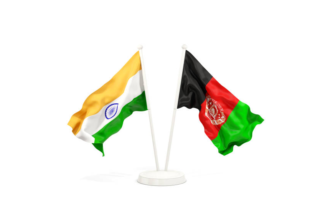What is Lidia Thorpe's History of Activism?
Lidia Thorpe is not new in controversy, and her latest remarks on the British monarchy have sparked debates about colonialism in Australia once more. Representing the Gunnai, Gunditjmara, and Djab Wurrung nations, she has been a senator for Victoria since 2020, therefore creating history as the first Aboriginal senator from that state. Thorpe has a strong background in Indigenous activism, most famously as head of NAIDOC (National Aborigines and Islanders Day Observance Committee) for Victoria before running for political office. This group works to teach Australians about First Nations cultures and histories.
How Did She Call Out the Coloniser?
After declaring the late Queen a colonizer, Thorpe made news in 2022 when she was sworn into Parliament upon re-election. During the ceremony, she said, “I, sovereign Lidia Thorpe, solemnly and sincerely swear that I will be faithful and bear true allegiance to the colonizing Her Majesty Queen Elizabeth II.”
She swore the oath as it was printed after other senators objected. For those who know her political posture, her acts were not shocking; she has always said that British colonization resulted in the massacre of many Indigenous people, and many First Nations Australians today still bear long-lasting effects from colonization.
What Disparities and Calls for Action Exist?
The urgency of Thorpe’s message emphasizes the notable differences between First Nations people and non-Indigenous Australians, especially in education, health, and life expectancy. Prime Minister Anthony Albanese said last year that a young Indigenous guy was more likely to wind up in jail than in a university. Statistics showing the harsh reality Indigenous people live mirror this comment. Moreover, life expectancy for Aboriginal and Torres Strait Islander people is projected to be eight years less than that of non-Indigenous Australians between 2020 and 2022.
“I wanted to let the King of England know he is not the King of this country, he is not my king, he is not sovereign,” Thorpe said, reflecting her feelings. One must be of this place if one is sovereign. Not of this land is he.
What Recognition and Reparation Is She Demanding?
She went on, “How can he stand there and claim he’s the King of our country—he’s stolen so much wealth from our people and our land, and he needs to pay that back. He must also consider a dialogue for a peace treaty for this nation. We can lead that; we can do that; we can be a better nation, but we cannot submit to the colonizer whose ancestors he said in there who is responsible for mass murder, for mass genocide.
Among Thorpe’s main complaints is that Australia is the only Commonwealth country not to have signed a treaty with its Indigenous people. She has been arguing that last year’s referendum on a Voice to Parliament—a plan to include First Nations people in the constitution and let them advise Parliament—was only a diversion from reaching this aim.
What Diverging Opinions Exist Among Indigenous Leaders?
Finally failing, the referendum saw Thorpe join a handful of First Nations people voting against it. “The Voice was about assimilating us into the colonial constitution to make us neat, tidy little Indigenous Australians that would continue to be oppressed by the colonizer.”
Still, not every Indigenous Australian shared this point of view. Although Aboriginal people make up around 4% of Australia’s population, areas with a high concentration of Indigenous people voted in favour of the referendum most of the time. Just over 60% of voters nationwide turned against the plan.
Not all Indigenous leaders see royal visits under the same prism as Thorpe does. The Uluru Youth Dialogue co-chair, Allira Davis, said, “I respect the late Queen,” and even called her “beautiful,” albeit her posture was more subdued.
Concerning King Charles’s present visit, Davis said, “I don’t think it’s that important.” We are our nation. Knowing its past is essential to grasp its present. We are no longer a white nation. Our nation is brown. Our nation is incredibly cosmopolitan. I therefore support us in becoming a republic, but we also have to address acknowledging our First Nations people.
What is the Road Ahead for Lidia Thorpe?
Although many people who know about the continuous harm colonialism causes find resonance in Lidia Thorpe’s point of view, nobody shares her attitude. Local media sources suggest past colleagues have found her challenging to work with. Still, Thorpe—who left the Greens over their backing of the Yes vote in the referendum—showcases no indications of changing her position as an independent senator.
She is adamant about her conviction that the King ought to be more involved in correcting past injustices Australian Indigenous people experienced.








